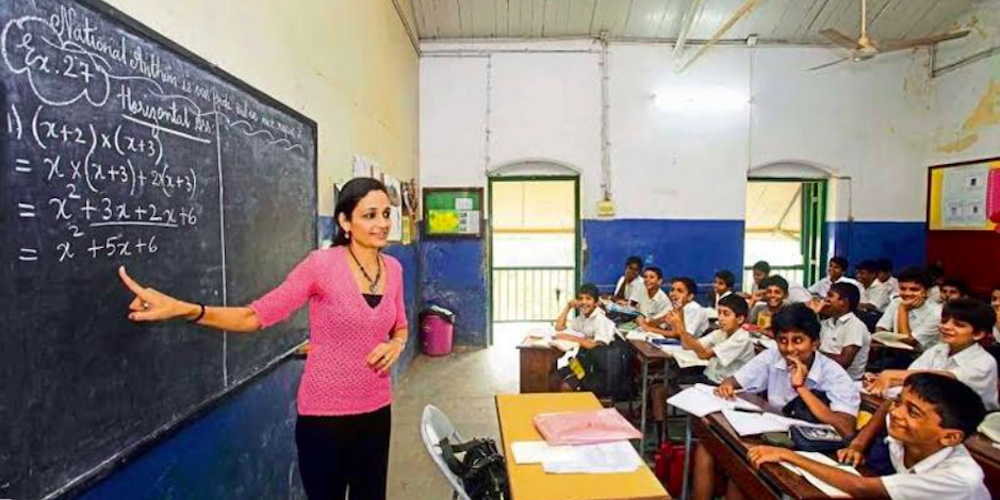A Participatory National Curriculum Framework for School Education

The Union Ministry of Education has prepared the pre-draft of the National Curriculum Framework (NCF) for School Education. But, given the diverse needs of students, multiple pedagogic approaches, learning-teaching material at the different stages of school education, the Modi government has felt it important to take feedback from students, parents, teachers, teacher educators, experts, scholars and professionals on the various sections and recommendations of this NCF-School Education (SE).
While giving your feedback, it needs to be kept in view that this is a pre-draft of the NCF-SE which still requires several rounds of discussion within the National Steering Committee. Feedback from diverse stakeholders will further help NSC to look critically into different modalities and approaches that this framework is proposing.
Feedback is solicited specifying the stage of school education, curricular area, school governance, assessment, etc.
You may send your feedback on the following email addresses- ncf.ncert@ciet.nic.in
It may be noted that the National Education Policy 2020( NEP 2020) aims at transforming the whole education system in India comprising school education and higher education. School Education works as the foundation stone of a child’s life. In the context of school education, NEP 2020 recommends shift from 10+2 structure to 5+3+3+4 and emphasises on developmental perspectives suggesting curricular and pedagogical shifts at different stages- foundational, preparatory, middle and secondary.
NEP 2020 focusses on competency-based education integrating cultural rootedness, equity and inclusion, multilingualism, experiential learning, reduction in content load, integration of arts and sports in the curriculum, etc.
As a follow-up of the NEP 2020, development of four National Curriculum Frameworks, viz., NCF for School Education, NCF for Early Childhood Care and Education, NCF for Teacher Education and NCF for Adult Education have been initiated.
The NCFs aim to be understandable and relatable to, and usable by, practitioners of education, including Teachers and other educators, school leaders, and functionaries of the education system such as project officers, cluster and block resource persons, block education officers, teacher educators, examination boards, and curriculum/syllabus/textbook development teams.
The NCFs also aims to provide the interested reader a reasonable understanding of what education should look like in our new vision for schools and why, and what role individuals could play as parents, community members, and citizens of India, who all have a large stake in Indian education.
Be that as it may, a National Steering Committee under the Chairpersonship of Dr. K. Kasturirangan was set up by the Ministry of Education to undertake and guide the development of NCFs.
Going through a participatory process of deliberations, inputs were sought for the National Curriculum Frameworks (in the area of ECCE, School Education, Teacher Education and Adult Education) from diverse stakeholders including teachers, parents, students, educational institutions, neo- and non- literates, subject experts, scholars, childcare personnel etc. Extensive public consultations in face-to-face as well as digital mode were carried out.
In this process of deliberations and discussions, more than 500 District Level Consultations and more than 50 consultations with different Ministries, religious groups, civil society organisations, NGOs and Universities were held in face-to-face mode with the participation of more than 8000 diverse stakeholders. In digital mode, Mobile App survey has received feedback from around 1,50,000 stakeholders. The Citizen Centric Survey, launched by the Ministry of Education in August 2022, has received inputs from more than 12,00,000 stakeholders. Inputs are being received in all areas of ECCE, School Education, Teacher Education and Adult Education. The highlights of the inputs revealed endorsement of the recommendations of NEP 2020 from all the regions.
Taking into cognizance these inputs, the National Curriculum Framework for Foundational Stage had been brought out and launched by the Ministry of Education on 20th October 2022. In continuation of this NCF-FS, the National Curriculum Framework for School Education – Pre-Draft is now ready.




A change was needed no doubt but will it cater to the needs of the children. We need infrastructure, teacher student ratio must be curtailed and concept of asst. teachers in all classes must be introduced or else NEP will not solve the problem
NCF is a very good initiative taken by the MHRD. But before rolling it in the curriculum designer should consider all the ground realities of different corners of the country as our country has a diverse culture and people’s living conditions. More importantly the actual field officers are the teacher who meet the students daily so they should be trained and the government should monitor the administration of the teacher’s in particular and school and department in general.